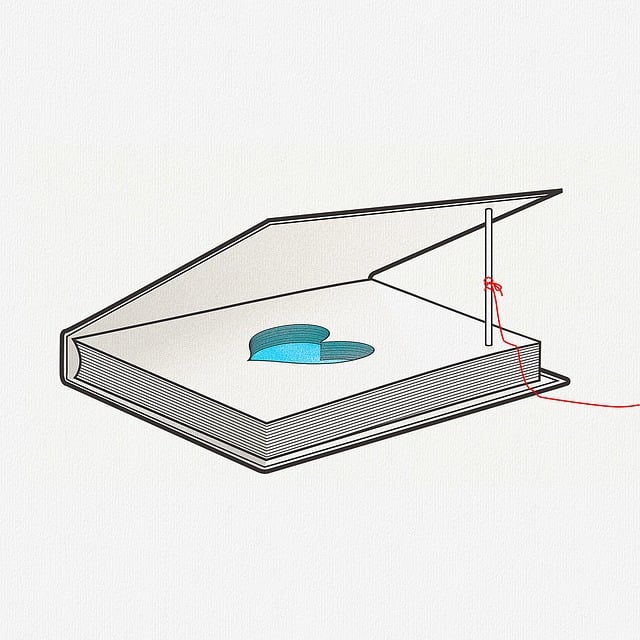Are you considering veneers but unsure about the potential downsides? Discover the disadvantages you need to know before making your decision.
1. Understanding the Drawbacks: A Comprehensive Look at Veneers
Before considering veneers as a dental solution, it is essential to understand both the benefits and drawbacks. While veneers offer many advantages, there are a few drawbacks to consider:
1. Permanent alteration: Veneers require the removal of a small amount of enamel from the tooth’s surface. This irreversible process means that the tooth will always require a veneer or crown to maintain its appearance, even if the veneer needs replacement in the future.
2. Sensitivity: Some patients may experience tooth sensitivity following the placement of veneers. This sensitivity typically subsides within a few weeks but can be managed with toothpaste designed for sensitivity.
3. Cost: Veneers can be a significant financial investment. They are not typically covered by insurance, and the total cost will depend on the number of teeth needing veneers and the complexity of the procedure.
4. Staining: While veneers are stain-resistant, they are not entirely immune to discoloration. Over time, they may develop slight yellowing or staining, especially if the patient consumes staining substances like coffee or tobacco.
5. Irreparable damage: Although veneers are durable, they can still chip or crack if subjected to excessive force, such as biting on hard objects or grinding teeth during sleep. Repairing damaged veneers usually requires replacement rather than repair.
2. Challenging the Hype: Unveiling the Disadvantages of Dental Veneers
While dental veneers may seem like a perfect solution to achieve a flawless smile, it’s important to acknowledge the potential disadvantages they may present. Here are some key points to consider before committing to getting dental veneers:
1. Irreversible Alteration: One significant disadvantage of dental veneers is that the process involves permanently altering your natural teeth. In order to attach the veneers, a thin layer of enamel needs to be removed. This irreversible alteration means that once you have veneers, you will always need to have them, as your natural teeth will be more susceptible to damage without the protective layer of enamel.
2. Sensitivity: Sensitivity is another common issue that some individuals may experience after getting dental veneers. Removing the enamel layer can make your teeth more sensitive to hot and cold temperature changes. While this sensitivity typically subsides after a few days or weeks, it’s important to be prepared for this potential temporary discomfort.
3. The Cost Factor: Evaluating the Financial Implications of Veneer Treatment
Veneer treatment is a popular option for those looking to enhance their smile, but it’s essential to consider the financial implications before making a decision. Here, we will explore the cost factor associated with veneer treatment and help you evaluate if it’s a viable option for you.
Factors influencing the cost of veneer treatment:
- Material: Veneers can be made from different materials, such as composite or porcelain. While composite veneers tend to be more affordable, porcelain veneers offer a more natural appearance but come at a higher price.
- Number of veneers required: The cost will depend on the number of teeth involved in the treatment. If you only need a few veneers, the overall expense will be lower compared to a full smile makeover.
- Complexity of the case: If your case requires additional procedures like gum contouring or tooth extraction, the overall cost of treatment may increase.
Other important considerations include the reputation and expertise of the dentist you choose, as well as the location of the dental clinic. Prices may vary depending on the region, so it’s advisable to research multiple options and consult with your dentist to get an accurate estimate tailored to your needs.
4. Not a Permanent Fix: The Limited Lifespan of Veneers and Potential Replacement
Veneers are undoubtedly a popular choice for achieving a flawless smile, but it is crucial to understand that they are not a permanent solution. With proper care and maintenance, veneers typically last between 10 to 15 years, depending on various factors such as oral hygiene, daily habits, and the overall condition of one’s teeth. However, it is important to note that veneers may need to be replaced sooner due to normal wear and tear, as well as potential damage caused by accidents or dental issues.
When considering veneers, it’s essential to understand that they are a long-term investment rather than a one-time fix. Over time, the veneers may experience normal wear and tear, which can lead to discoloration, chipping, or cracks. Additionally, factors like teeth grinding, biting on hard objects, or poor oral hygiene can accelerate the wear and tear process. Regular visits to the dentist are imperative to assess the condition of the veneers and monitor any potential issues. If replacement becomes necessary, your dentist will guide you through the process, ensuring the new veneers match your existing teeth seamlessly, giving you a renewed and vibrant smile.
5. Increased Sensitivity: Exploring the Nerve Sensitivity Associated with Veneers
Veneers are a popular cosmetic dental treatment that can dramatically transform your smile. However, it’s important to be aware of the potential increase in sensitivity that may occur after getting veneers. While not everyone experiences heightened sensitivity, it is a common occurrence that should be addressed and understood.
Here are a few key factors to consider:
- Temporary Sensitivity: After the placement of veneers, some patients may experience temporary sensitivity to hot or cold stimuli. This occurs due to the removal of a small amount of tooth enamel during the preparation process. The exposed dentin, which contains microscopic tubules that communicate with the nerve, can lead to increased sensitivity. Fortunately, this sensitivity typically subsides within a few days or weeks as the tooth adjusts to the veneer.
- Pre-existing Sensitivity: Individuals with pre-existing tooth sensitivity may find that veneers exacerbate their sensitivity. This may occur if the veneers are not properly bonded, allowing irritants to penetrate and irritate the underlying tooth nerve. However, with advancements in dental technology and bonding techniques, proper placement of veneers can significantly reduce the risk of aggravating pre-existing sensitivity.
- Long-term Sensitivity: In rare cases, some individuals may experience prolonged sensitivity even after the initial adjustment period. This could be due to nerve irritation or other factors. Rest assured that your dentist can help identify the cause of the prolonged sensitivity and recommend appropriate solutions, such as desensitizing toothpaste or adjustments to the veneers.
When considering veneers, it is crucial to discuss potential sensitivity issues with your dentist. By addressing your concerns and undergoing a comprehensive evaluation, your dentist can determine the most appropriate approach, ensuring your journey to a stunning smile remains comfortable and pain-free.
6. Increased Maintenance: The Importance of Proper Oral Hygiene when Wearing Veneers
When you have veneers, maintaining proper oral hygiene becomes even more important. Here’s why:
- Veneers require regular cleaning to prevent plaque and bacteria buildup. This means brushing your teeth at least twice a day with a soft-bristled toothbrush and non-abrasive toothpaste. Avoid using excessive force as it may damage the veneers.
- Flossing is essential to remove plaque and food particles between your teeth and veneers. Be gentle while flossing and use a waxed floss to avoid any potential damage.
- Regular visits to your dentist for professional cleanings are crucial. Dentists can identify any issues with your veneers and provide specialized cleaning methods that ensure their longevity.
Additionally, it’s important to take note of certain habits that can compromise the integrity of your veneers:
- Avoid biting or chewing on hard objects such as ice, pens, or fingernails that can cause veneer damage. Opt for softer foods to minimize the risk of chips or fractures.
- Limit your consumption of stain-causing beverages and food like coffee, tea, red wine, and berries. These can potentially discolor your veneers over time.
- If you engage in teeth grinding or clenching, talk to your dentist about wearing a nightguard to protect your veneers while you sleep.
7. Potential Damage: Recognizing the Risks of Chipping or Cracking Veneers
While veneers can greatly enhance the appearance of your teeth, it’s important to understand that they are not indestructible. Although they are designed to be durable, certain habits or incidents can put them at risk of chipping or cracking. Being aware of these risks can help you take the necessary precautions to protect your veneers and prolong their lifespan.
Here are some potential factors that can lead to damage:
- Biting or chewing hard objects: Excessive force applied to your veneers, such as biting on ice, hard candies, or pens, can lead to cracks or chips.
- Gnashing or grinding teeth: Bruxism, the habit of clenching or grinding your teeth, can exert immense pressure on the veneers, making them more susceptible to damage.
- Accidental impacts: Trauma to the face, whether from a sports injury or a fall, can cause veneers to chip or crack.
- Poor oral hygiene: Neglecting your oral care routine can lead to complications such as gum disease or tooth decay, which can weaken the integrity of the veneers.
By understanding these potential risks, you can make informed choices about your dental care. Remember to follow good oral hygiene practices, avoid habits that put excess pressure on your veneers, and address any dental issues promptly to ensure the longevity of your beautiful smile.
8. Irreversible Process: Highlighting the Importance of Prior Consideration and Decision-making
When it comes to decision-making, it is crucial to understand that certain choices are irreversible. This highlights the significance of carefully considering all factors and options before making a decision. Once an irreversible process is initiated, there is no turning back, and its consequences will be long-lasting.
Irreversible processes can have a wide range of impacts, both positive and negative. It is therefore essential to approach such decisions with caution and a clear understanding of the potential outcomes. Here are some reasons why prior consideration and decision-making are paramount when dealing with irreversible processes:
- Consequences: Irreversible processes can have irreversible consequences. These consequences can impact various aspects of our lives, such as relationships, finances, career, and personal well-being. By carefully considering the potential outcomes, we can make more informed decisions and avoid unnecessary negative consequences.
- Future-proofing: Considering the long-term effects of irreversible processes is crucial for future-proofing our actions. By assessing how a decision may impact us in the long run, we can make choices that align with our long-term goals and aspirations.
- Risk mitigation: Prior consideration helps us identify and mitigate potential risks associated with irreversible processes. By thoroughly evaluating all the associated risks, we can implement appropriate measures to minimize the negative impact and increase the chances of success.
9. Unsuitable Candidates: Identifying When Veneers May Not Be the Ideal Option
Veneers are a popular choice for enhancing the appearance of teeth, but they may not be suitable for everyone. When considering veneers, it’s important to identify if you fall into the category of unsuitable candidates in order to make an informed decision. Here are some factors to consider:
- Severe tooth decay or gum disease: If you have extensive tooth decay or gum disease, veneers may not be the ideal option. These conditions can compromise the long-term success of veneers and may require other dental treatments before veneers can be considered.
- Insufficient tooth enamel: Veneers require a certain amount of enamel to be adhered to. In cases where there is inadequate enamel, alternative treatments such as dental bonding or crowns may be more suitable.
- Malocclusion or misalignment: If you have severe misalignment or bite issues, veneers may not be the optimal solution. Orthodontic treatments like braces or clear aligners may be recommended to correct these problems before considering veneers.
Veneers can provide exceptional aesthetic results, but it’s essential to consult with a dental professional to determine if they are the right choice for you. Other factors that may make you an unsuitable candidate include bruxism (teeth grinding), ongoing tooth sensitivity, or a history of frequent dental treatment. A thorough examination of your oral health and a discussion with your dentist will help you decide if veneers are the ideal option or if alternative treatments are more appropriate.
10. A Temporary Fad: Debunking the Misconception that Veneers are Always the Best Choice
When it comes to cosmetic dentistry, veneers have become incredibly popular in recent years. However, it is important to understand that veneers are not always the best choice for everyone, despite their temporary fad status. There are several factors to consider before deciding on veneers as a cosmetic solution.
1. Cost: Veneers can be quite expensive, and the cost may not be justifiable for everyone. It’s essential to weigh the financial implications before committing to this procedure.
2. Health of Teeth: Veneers require the removal of a thin layer of enamel from the natural teeth. If your teeth are already weakened, have large fillings, or are prone to decay, veneers may not be the most suitable option as they can further compromise the tooth structure.
3. Irreversible Procedure: Once the procedure is done, it is irreversible. Veneers are a lifetime commitment, as they require replacement every 10-15 years on average, which can be costly and time-consuming.
4. Staining and Durability: While veneers are known for their stain resistance, they are not completely immune to discoloration over time. Moreover, they can chip or crack if subjected to excessive force or habits like teeth grinding.
5. Alternative Treatments: There are alternate cosmetic treatments available that may suit your needs better. Teeth whitening, dental bonding, or orthodontic treatments like braces or aligners could be more appropriate depending on the desired outcome and the condition of your teeth.
In conclusion, being aware of the downsides of veneers is crucial. Although they offer aesthetic improvements, disadvantages such as potential damage to natural teeth and high cost should not be overlooked. Make an informed decision that aligns with both your desires and dental health.






